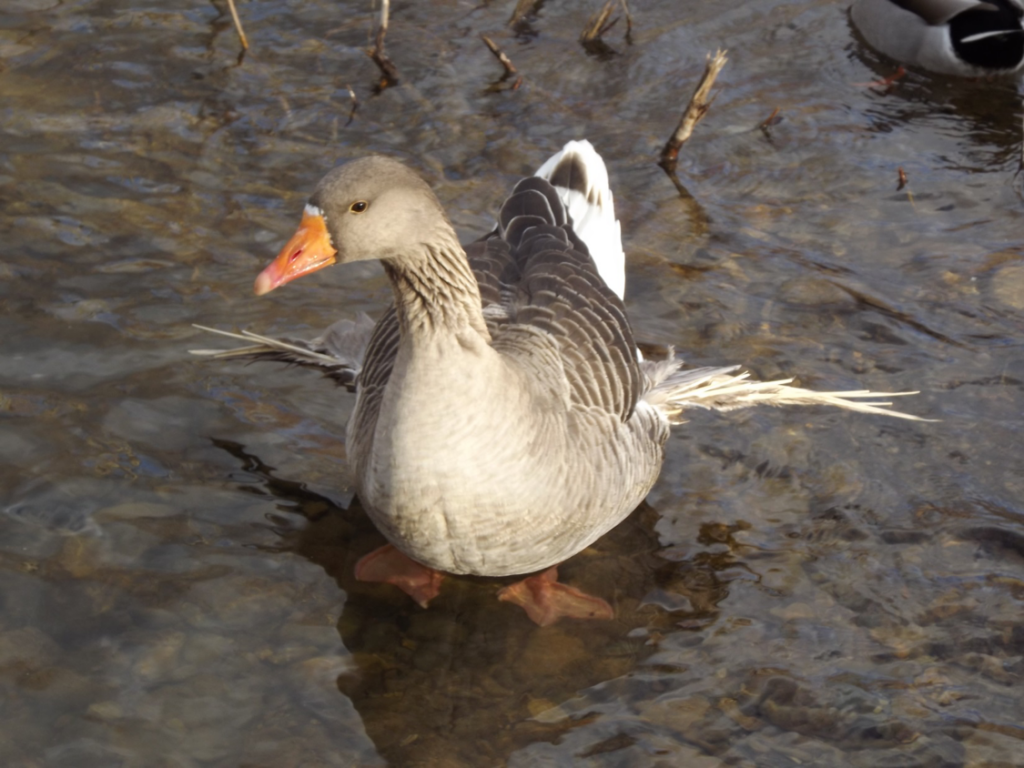Published in The Roanoke Star
January 7, 2014
For some people it’s a family tradition to take their kids to the local pond or river and feed bread to the ducks and geese that congregate there. Arriving with a bag of stale bread the ducks and geese approach you eagerly, anxiously waiting for a handout. It is a way to interact with wildlife, and seems harmless since the birds did eat the bread. Yes, I must confess, I’m guilty; I sometimes fed wild ducks and geese bread. That immediately stopped when I learned that feeding bread at the local duck pond or river was detrimental to their health and the water quality.
We know a junk food diet isn’t healthy for people. We also know just because you like to eat it that doesn’t mean it’s good for you. What applies to people also applies to our feathered friends. Bread, popcorn, and crackers are considered junk food for waterfowl and can cause a multitude of problems. If you think about it, birds don’t bake. So how could bread be part of a natural diet for them to eat? Therefore, I thought I would share a few things that I have learned.
When birds become accustomed to handouts, they lose their natural fear of humans and may become aggressive in order to get more food. Ever been mobbed by Canada Geese? Not fun.
Uneaten bread will rot creating algae and fungal growth that can clog natural waterways and produce toxins that can harm fish and wildlife.
Because ducks will naturally seek out an easy food source such as human handouts, ducklings will not learn to forage for natural foods as easily. For example, it’s easier to grab food at a drive-thru than to prepare food at home.
Ducklings eating junk food will not receive adequate nutrition for proper growth and development which can cause vitamin, protein and calcium deficiencies leading to weak bones, liver disease and Angel Wing. (See photo of a goose with Angel Wing)
Where an easy food source is abundant, ducks and other waterfowl will lay more eggs and the pond or lake will become overcrowded. This increases the likelihood of territorial aggression and predation.
Congregations at feeding sites can also lead to higher disease exposure among birds, including parasites, viruses and bacteria such as salmonella.
Feeding them bread also leads to increased bird feces that can harbor bacteria responsible for numerous diseases, including avian botulism. Uneaten bread can draw rats, mice and insects that harbor additional diseases that can be dangerous to humans. Well, I think you get the picture. I am not saying that you shouldn’t visit the ponds and rivers to see the ducks and geese. I just don’t advocate feeding them. If this has been your family tradition, what do you tell your kids? Use it as a teaching moment for them to learn about the difference between good food and bad food. Explain why you should not feed ducks and geese bread. Tell them that the food ducks need is available all around them. Take photos or videos and enjoy watching their natural behavior.

